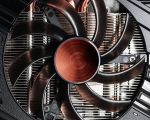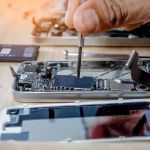1. Introduction: Why You Should Create a Multi-Boot USB Drive
If you're a tech enthusiast or an IT professional, you may find the need to run multiple operating systems on a single device. A multi-boot USB drive allows you to store several operating systems on a single USB stick, enabling you to easily switch between different OSes as needed. This can be especially useful for testing different systems, using lightweight OSes for old hardware, or even carrying around your personal workspace wherever you go. In this guide, we will walk you through how to make a multi-boot USB drive for different operating systems in just a few simple steps.
2. What You Need to Create a Multi-Boot USB Drive
Before you start, you’ll need a few things to successfully create a multi-boot USB drive:

Full Cycle Bikes & Colorado Multisport
2355 30th St, Boulder, CO 80301, USA
1. A USB Drive
Your USB drive should have at least 16GB of storage, but more space is recommended if you plan to store multiple operating systems. A larger USB drive will also allow you to store additional tools or data that might come in handy.

Full Cycle Bikes & Colorado Multisport
2355 30th St, Boulder, CO 80301, USA
2. ISO Files for Each Operating System
You’ll need the ISO files for the operating systems you want to install. Common choices for multi-boot setups include Linux distributions like Ubuntu, Mint, and Fedora, but you can also include Windows or other OSes depending on your needs.
3. A Multi-Boot USB Tool
Using a dedicated tool makes the process much easier. Some of the most popular options include Ninja Stik, YUMI, and Ventoy. These tools are designed to allow you to select multiple ISOs and create a bootable drive that can run them all.
3. Step-by-Step Guide to Creating a Multi-Boot USB Drive
1. Prepare the USB Drive
First, plug your USB drive into your computer. Use a tool like the built-in Disk Management in Windows or the Disk Utility on macOS to format your USB drive. It’s important to format the drive as FAT32 or exFAT to ensure compatibility with different operating systems.
2. Install Your Chosen Multi-Boot Tool
Download and install your preferred multi-boot tool. If you’re using Ninja Stik, go to the official website and follow the installation instructions. The software is designed to simplify the process and provide a user-friendly interface for adding multiple operating systems to the drive.
3. Add Your ISO Files
Once the multi-boot tool is installed, open it and follow the instructions to add your ISO files. Most tools will allow you to simply browse your computer for the ISO files you’ve downloaded and add them to the USB drive. The software will take care of the rest, making sure each operating system is properly configured for booting.
4. Make the Drive Bootable
After adding all the desired operating systems, ensure the USB drive is set as bootable. The multi-boot tool will often offer this option automatically, but you can also check the settings to confirm that the USB drive is ready to be used for booting.
5. Test the Multi-Boot USB Drive
Once the multi-boot USB drive is ready, restart your computer and enter the BIOS or boot menu. Select the USB drive as the boot device and test the boot process for each operating system you’ve added. If everything is set up correctly, each OS should load seamlessly, and you can switch between them easily.
4. Troubleshooting Common Issues When Creating a Multi-Boot USB
1. USB Drive Not Booting
If your USB drive isn’t booting, check that the boot order in the BIOS is set to prioritize USB devices. If that doesn’t work, try formatting the drive again and ensure it’s formatted correctly as FAT32 or exFAT. Using the correct multi-boot tool like Ninja Stik can also resolve compatibility issues.
2. OS Installation Fails
If an operating system isn’t installing properly, ensure that the ISO file is not corrupted. You can verify the file’s integrity by checking its hash against the official website. Also, ensure your USB drive has enough space for the installation.
3. Slow Boot Times
If your multi-boot USB drive is slow to load, try using a faster USB drive or a higher-speed port on your computer. USB 3.0 or later ports provide faster data transfer speeds compared to older USB 2.0 ports.
5. Real-Life Story: Successfully Creating a Multi-Boot USB Drive
Mark, a freelance developer, needed to test several operating systems for a new project but didn’t want to maintain multiple computers. He decided to create a multi-boot USB drive using Ninja Stik. After selecting his preferred Linux distributions and adding Windows 10 for testing, Mark successfully booted each OS from the USB without any issues. This solution saved him time, money, and space, all while offering the flexibility to switch between systems on the go.
6. Why Ninja Stik Is Your Best Tool for Multi-Boot USB Creation
Ninja Stik is a powerful and easy-to-use tool for creating multi-boot USB drives. Unlike other tools, Ninja Stik provides a simple drag-and-drop interface, making it accessible for users of all skill levels. It supports a wide range of operating systems, and its fast setup ensures that you can get your multi-boot drive ready in no time. Whether you're a tech enthusiast, developer, or just someone who needs to use multiple OSes, Ninja Stik makes the process hassle-free.
7. Conclusion: Enjoy the Flexibility of a Multi-Boot USB Drive
Creating a multi-boot USB drive for different operating systems is a great way to maximize the potential of your hardware. With the right tools and some simple steps, you can easily set up a portable, flexible solution that lets you run multiple operating systems from a single USB drive. If you're looking for the best tool to simplify the process, visit Ninja Stik and discover how easy it is to create your own multi-boot USB drive today.



























